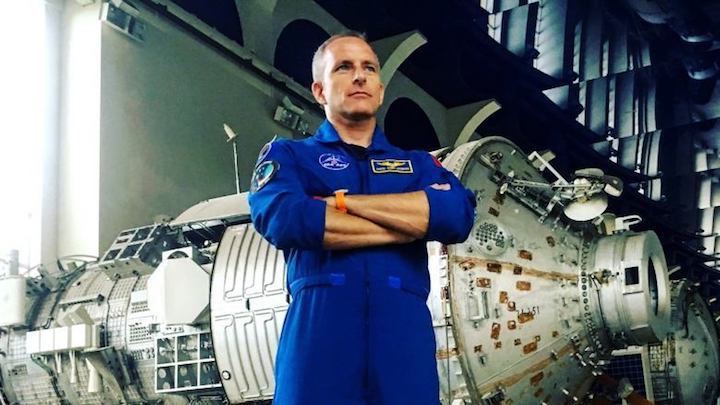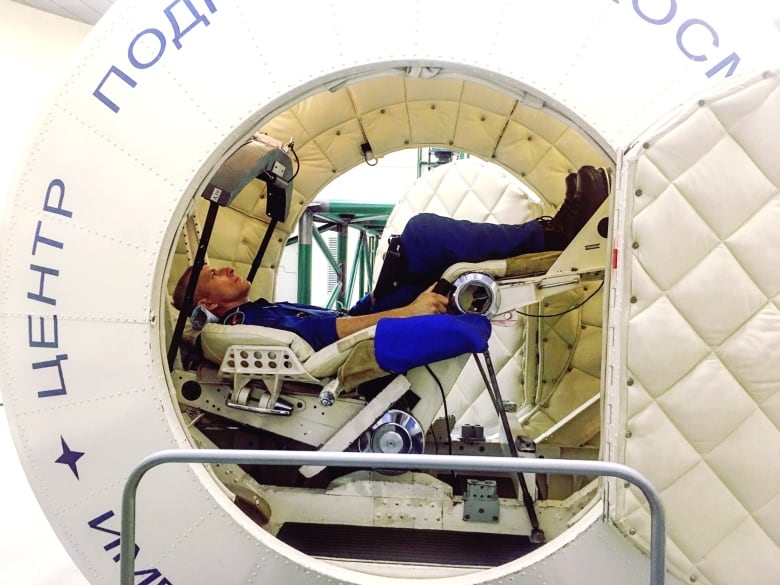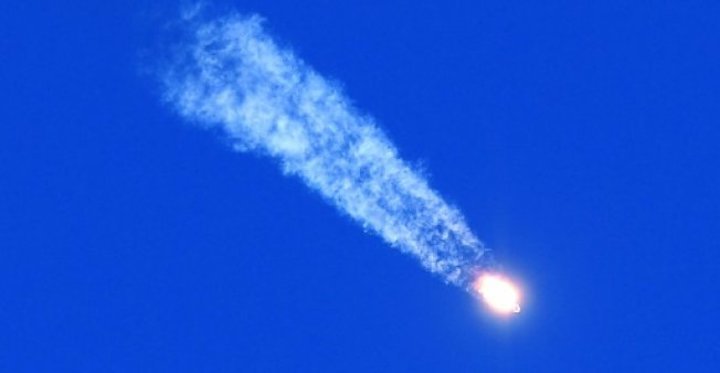19.08.2018
Frosty relations with Russia don't matter up in space, says Canada's soon-to-launch astronaut

Frosty relations with Russia don't matter up in space, says Canada's soon-to-launch astronaut
-
Space exploration may not quite be the final frontier of co-operation between Canada and Russia — but it's close.
In spite of successive rounds of economic and diplomatic sanctions — as a result of issues such as Russia's role in Ukraine and Syria — the job of blasting people into orbit has remained remarkably untouched by the bitter divide between Russia and its Western space partners, which include Canada.
"I like to view myself that I am standing on a bridge above all the unrest and tensions," said David Saint-Jacques, Canada's next space-bound traveller, who is scheduled to launch in December.
The 49-year-old Montrealer will lift off in a Russian rocket, sitting alongside a Russian cosmonaut commander and relaying key information to a ground-based Russian mission control, all the while speaking in Russian.
"You have to acknowledge politics — it exists," Saint-Jacques said. "It is a reality and we don't dismiss it, but we are fortunate, [as] cosmonauts and astronauts, that we are part of one of those few 'strings' that still exist between nations."
Saint-Jacques, who earned a PhD in astrophysics and also worked as a medical doctor, has been training for his December flight at Russia's Yuri Gagarin Cosmonaut Training Centre, about an hour and half northeast of Moscow. This week, Canadian media were invited to observe some of his exercises and speak to the other two members of the crew.

While many other sectors of Russia's economy, such as the banking and energy industries, have been the frequent target of Western sanctions, so far, space has been left untouched.
Practical partnership
In April, Russian President Vladimir Putin told an audience of space enthusiasts at a Cosmonaut Day address in Moscow that he has no intention of drawing the space program into his disagreements with the United States and other Western countries.
There may be practical reasons for that. Russia's space program remains a huge source of pride for the country, and Putin's government frequently invokes the names of great Russian space travellers — such as Gagarin — as he attempts to rebuild Russia's standing in the world.
NASA is also in the midst of a long-term contract with Russia that is lucrative for Putin's administration. NASA is paying Roscosmos, Russia's space agency, more than $2.6 billion US to take its astronauts up to the International Space Station until 2019. The last Canadian astronaut in space, Commander Chris Hadfield (who commanded the ISS in 2013), flew there in a Russian Soyuz rocket.

Since the end of NASA's Shuttle Program in 2011, Roscosmos has been the only option for moving people to the space station. The contract has been a lucrative source of money for Russia's space program, allowing the Putin government to continue working on new heavy-lift rockets with the aim of phasing out the 50-year-old Soyuz technology.
The hope is that Russia's new generation of rockets will be able to compete with soon-to-be-available privately owned spacecraft developed by U.S. companies such as Boeing and SpaceX.
Saint-Jacques says that while economics matter, he believes space has been free of political retribution mostly because all sides agree mankind must keep pushing forward with exploration.

"I think there's something sacred about space," he said. "There's something intrinsic about the fact we are not on Earth when we work."
'An instant bond'
Canada's focus in international missions at the space station has been looking at the effects of long-term weightlessness on the human body.
During the coming mission, Saint-Jacques will be doing a bevy of medical experiments — including on himself — to examine, for example, the effect of space on bone mass. Saint-Jacques said that space can be very dangerous for the human body, and that he and his colleagues need to study its effects to prepare for longer missions in the future.
Come December, Saint-Jacques will be jammed into the tiny capsule alongside 54-year-old Russian cosmonaut Oleg Kononenko, who'll be making his fourth trip to the International Space Station, and 39-year-old American Anne McClain.

McClain told CBC that the realities of working in cramped quarters for months at a time mean there's no room for politics.
"I think there is something magical and unique with the drive to explore," she said. Among astronauts, there's "an instant bond."
Saint-Jacques acknowledges political conversations do come up — and not everyone agrees — but he says no one ever lets their political beliefs get in the way of the mission or its objectives.
"It's our professional pride as space explorers that we daily demonstrate that we can work together."
Saint-Jacques, who speaks English, French, Spanish and Japanese, started learning Russian not long after he was accepted into Canada's astronaut program nine years ago. In conversations with Roscosmos staff and trainers, he makes jokes and seems at ease with the language.

Alexei Darkin, a Russian mission specialist who's helping train Saint- Jacques in the lead-up to the mission, praised his ability to get along with the Russian members of the team.
"David is using his Russian language skills and doing very well," Darkin said. "I don't think he will have any difficulties on the space station."
Quelle: CBC
---
Update: 1.11.2018
.
Russia targets Dec 3 for first manned ISS launch since accident

Russia hopes to launch three crew for the International Space Station on December 3, the first manned blast-off since an accident this month, the Roscosmos space agency said Wednesday.
Russia, the only country able to ferry astronauts to the orbiting science lab, suspended all launches after a Soyuz rocket failed on October 11 just minutes after blast-off -- the first such incident in the history of post-Soviet space travel.
Roscosmos executive director Sergei Krikalyov told the RIA Novosti state news agency: "The industry is now making significant efforts to move forward the launch to December 3."
On the rocket destined for the ISS will be Russian cosmonaut Oleg Kononenko, Canadian astronaut David Saint-Jacques, and NASA's Anne McClain.
The trio had originally been scheduled to blast off on December 20, but had their trip brought forward after the failed October 11 launch with Russia's Aleksey Ovchinin and Nick Hague of NASA on board.
Ovchinin and Hague returned safely back to Earth in their capsule, and are likely get their chance to go to the space station in the spring, Roscosmos chief Dmitry Rogozin has said.
Krikalyov said the astronauts currently on the ISS -- Alexander Gerst of the European Space Agency, NASA's Serena Aunon-Chancellor, and Sergey Prokopyev of Roscosmos -- are expected back on Earth "around December 20."
They had initially been scheduled to land on December 13 after their stint on the ISS, a joint project of the space agencies of America, Europe, Russia, Japan and Canada.
Meanwhile, an unmanned Progress cargo ship will blast off to the ISS on November 16 after its launch was postponed from October 30 due to the accident investigation, Krikalyov said.
- Sensor malfunction -
In the first official report on the cause of the accident, Roscosmos said a sensor that indicated the separation of the first two stages of the rocket malfunctioned.
The Soyuz carrier rocket taking up the astronauts has three stages, or segments. The first stage with four boosters is used to blast the rocket into the sky, before falling back to Earth as the second and third stages continue the journey.
"The reason found by the commission (investigating the accident) was the abnormal operation of a sensor that signals the separation of the first and second stages," Krikalyov said at a space industry event in Moscow.
The malfunction led to one of the four boosters on the first stage failing to detach correctly and colliding with a fuel tank of the second stage, which exploded.
- Blow to image -
The accident was the first involving a manned launch since the Soviet era and delivered another blow to the image of Russia's space programme after embarrassing losses of satellites and of an unmanned cargo ship in 2015.
Russia has opened a criminal probe into a possible breach of safety rules in construction.
Roscosmos director Rogozin, a former deputy prime minister and nationalist politician, was shown dressing down space industry officials in a video released by RIA Novosti Wednesday.
"Listen guys, you can't work like this," Rogozin says in the footage, which an official said was shot last week at a meeting to discuss problems with Soyuz rockets. The director threatened to withhold bonus payments.
Deputy Prime Minister Yury Borisov also criticised the space sector Wednesday for "very high" overheads and having "very many bosses".
Roscosmos is due to hold a press conference Thursday to further detail the findings of the accident probe.
Quelle: FRANCE 24
